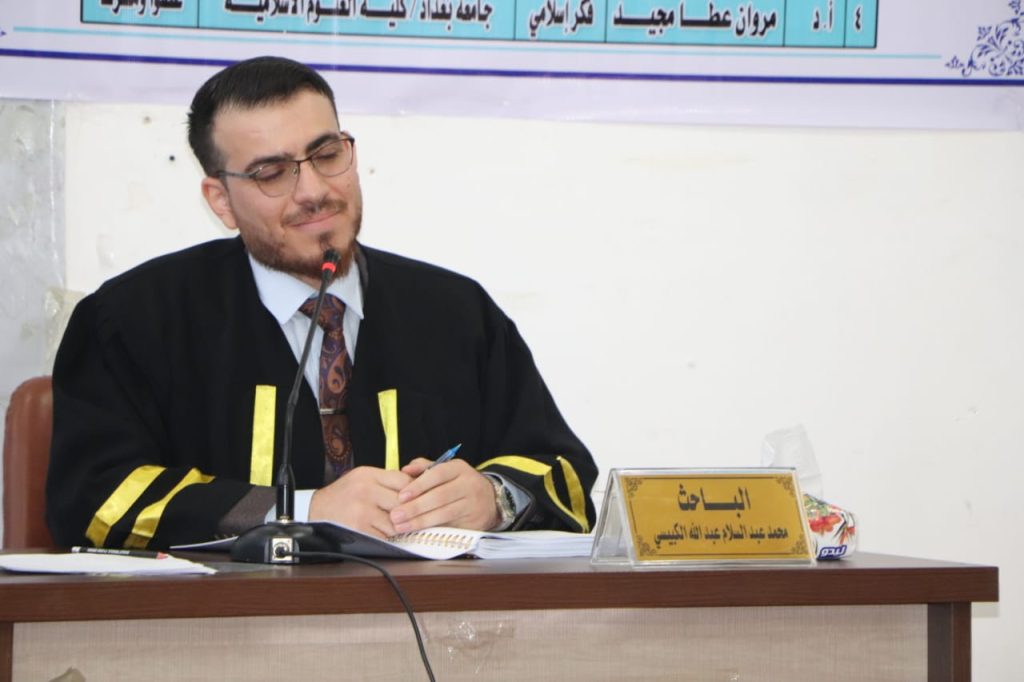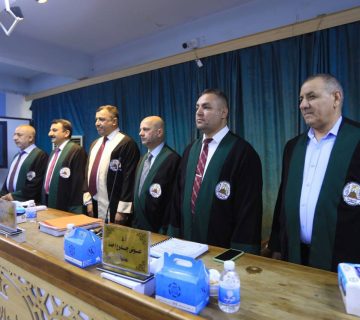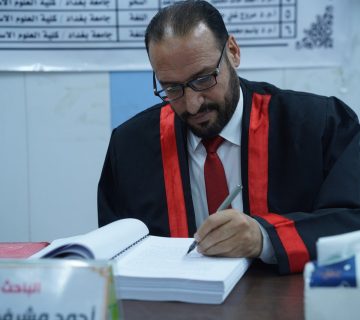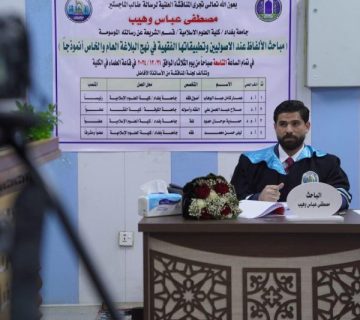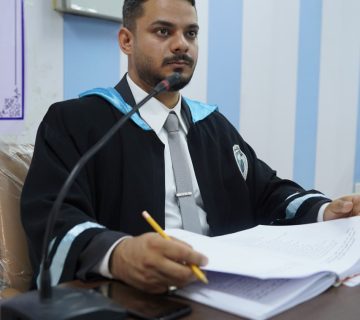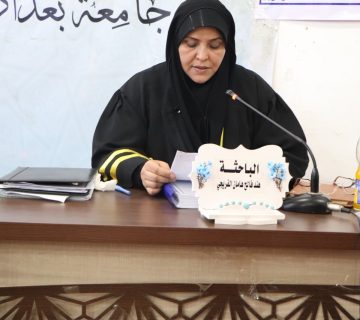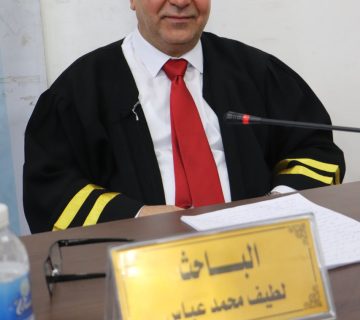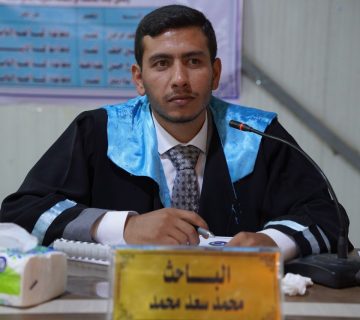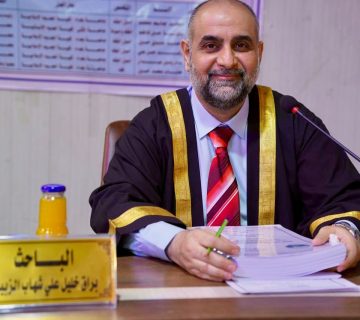The College of Islamic Sciences at the University of Baghdad discussed the thesis titled ‘Interactive Education and Its Impact on Preventing Violent Extremism: A Study in Islamic Thought’ presented by the student Mohammed Abdul Salam Abdullah from the Department of Creed and Islamic Thought in Al-Al-Bayt Al-Atyab Hall.
The importance of this study is underscored by its illumination of the use and application of modern interactive teaching tools in combating violence through Islamic thought. This provides a knowledge base to assist educational and pedagogical institutions in developing plans and strategies that facilitate the engagement of teachers and students in creating a secure environment. Understanding the root causes of violence and terrorism helps educational and administrative authorities in building therapeutic and preventive content to mitigate the prevalence of these phenomena, fostering a safe environment that addresses all underlying factors leading to violence and its practice.
Top of Form
The thesis produced several key findings, including: Traditional education has not facilitated the achievement of high performance levels due to various external and internal factors that have directly or indirectly impacted it. These factors include technological changes in society, outdated curricula, and a lack of educational expertise. Consequently, there is a quest for transitioning from traditional education to interactive education. The transition requires efficient human resources and substantial initial material resources, including a robust infrastructure for project implementation. Teachers play a crucial role in addressing the challenge of terrorism in all its forms by employing cooperative teaching methods. Additionally, their impartiality and lack of sectarian bias contribute to countering terrorist ideologies effectively. Teachers are advised to allocate time during lessons specifically for combating terrorist ideologies and violence, emphasizing the importance of their role in this aspect.
The thesis was approved with a satisfactory evaluation by the examining committee, consisting of Professor Dr. Saad Ali as the chairperson, Dr. Khaled Mustafa, and Dr. Shukriya Hamoud as members, and Professor Dr. Marwan Atta as a member and supervisor. The defense session was attended by Professor Dr. Nama Dhiab Farhan, the Dean of the College, and his administrative assistant, Dr. Arkan Rahim Jabr, to closely follow the academic proceedings.









